A quick primer on Legends of Runeterra cards and their abilities
All the effects you need to know.
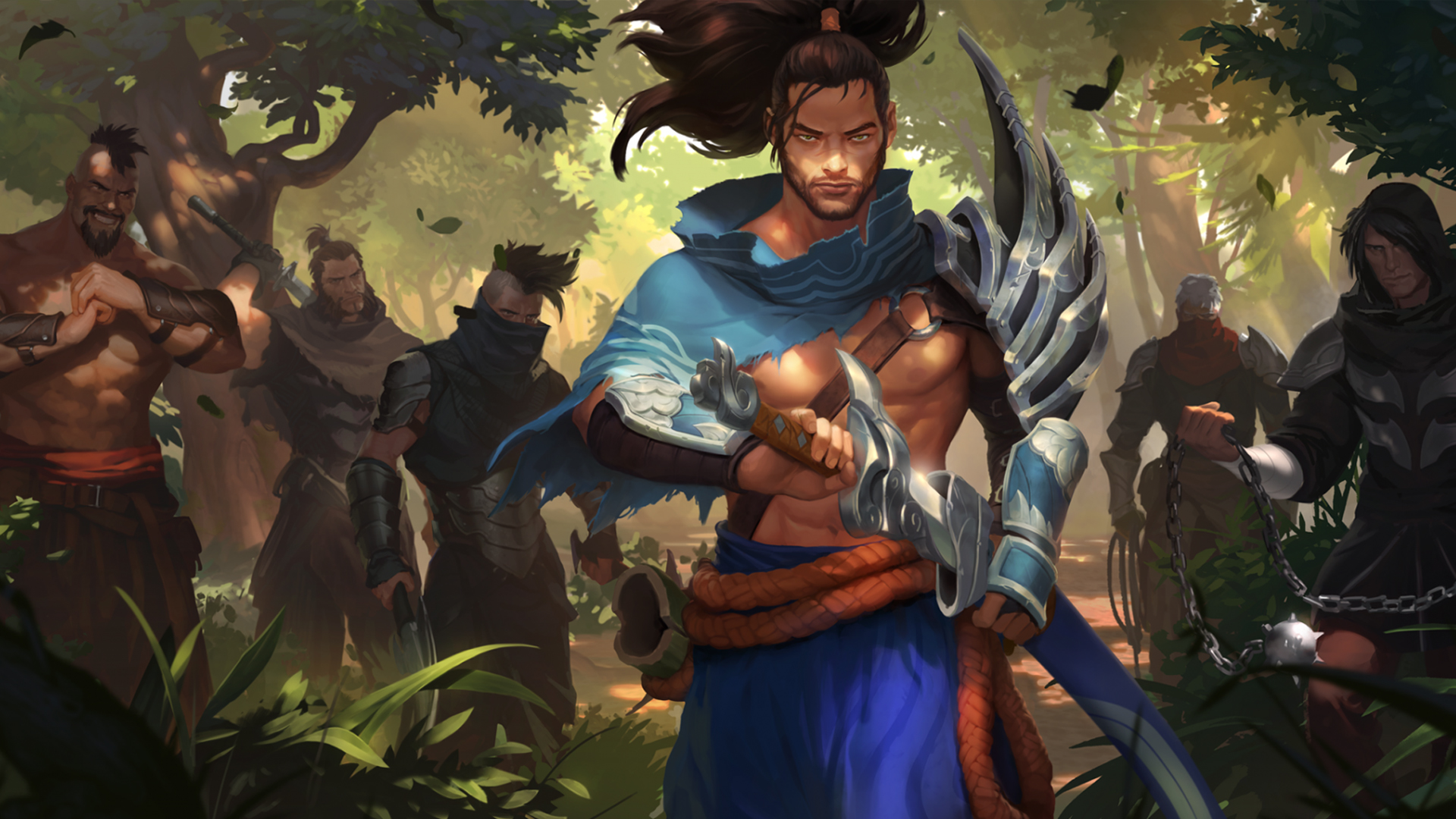
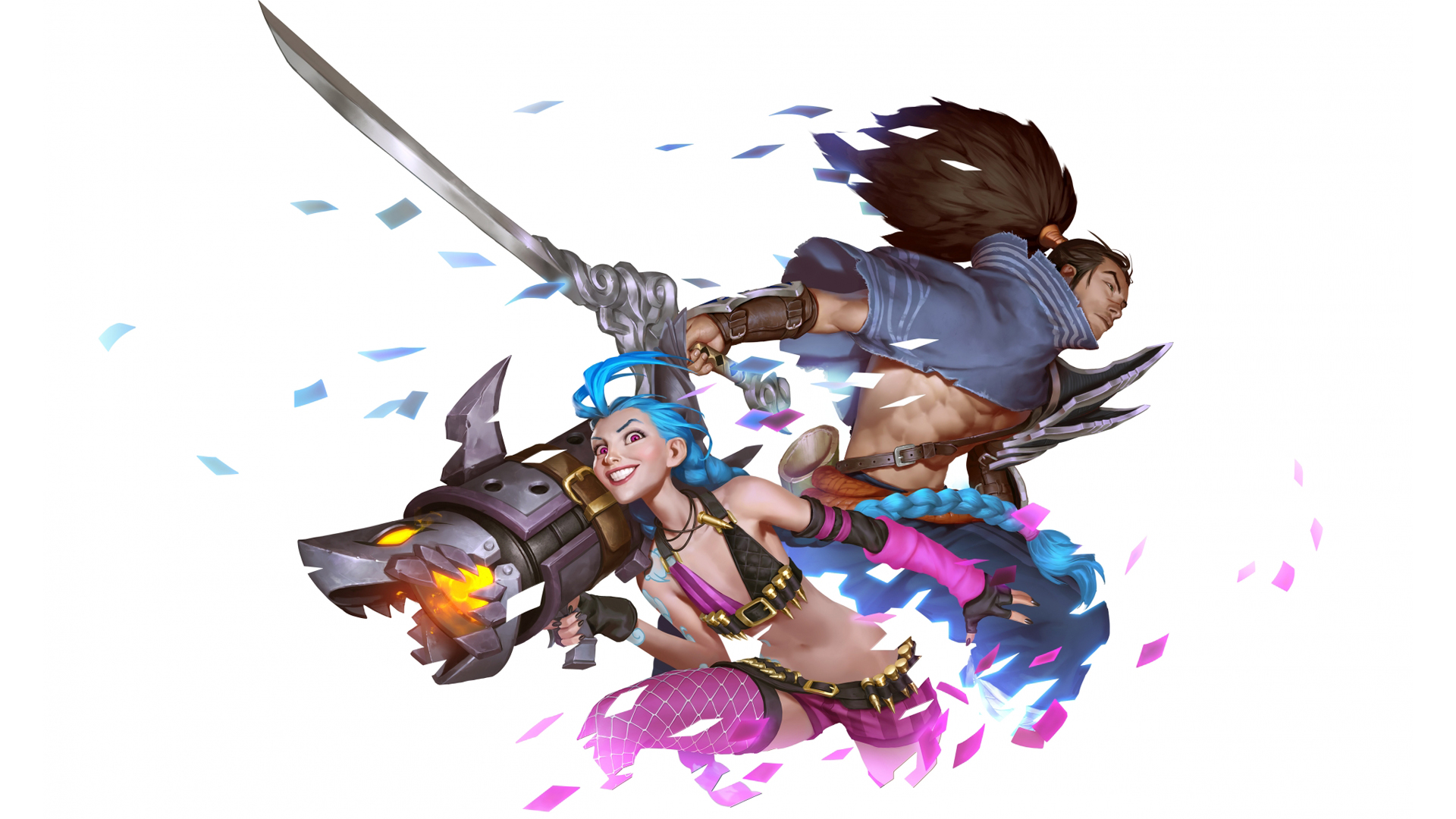
How to play Legends of Runeterra: our full guide
Legends of Runeterra decks: the best around
Legends of Runeterra regions: a breakdown of each faction
Legends of Runeterra coins: card costs and microtransactions detailed
Legends of Runeterra champions: every one in the game
Legends of Runeterra vault: earn rewards weekly
Need to familiarise yourself with the Legends of Runeterra cards and keywords before hopping into a match? It's important to understand how your deck works if you hope to perform well and win games. Learning which special effects your units have can give you an advantage on the board. Understanding casting conditions for spells helps you to stay ahead, too.
Legends of Runeterra cards contain a long list of powerful mechanics, from stealing health, to having strong post-death effects. More effects and abilities are bound to be added in the future, so I'll continue to update this guide. For now, here's a refresher on how to effectively use your spells and allies.
Legends of Runeterra cards: keywords, abilities, and layout
Layout
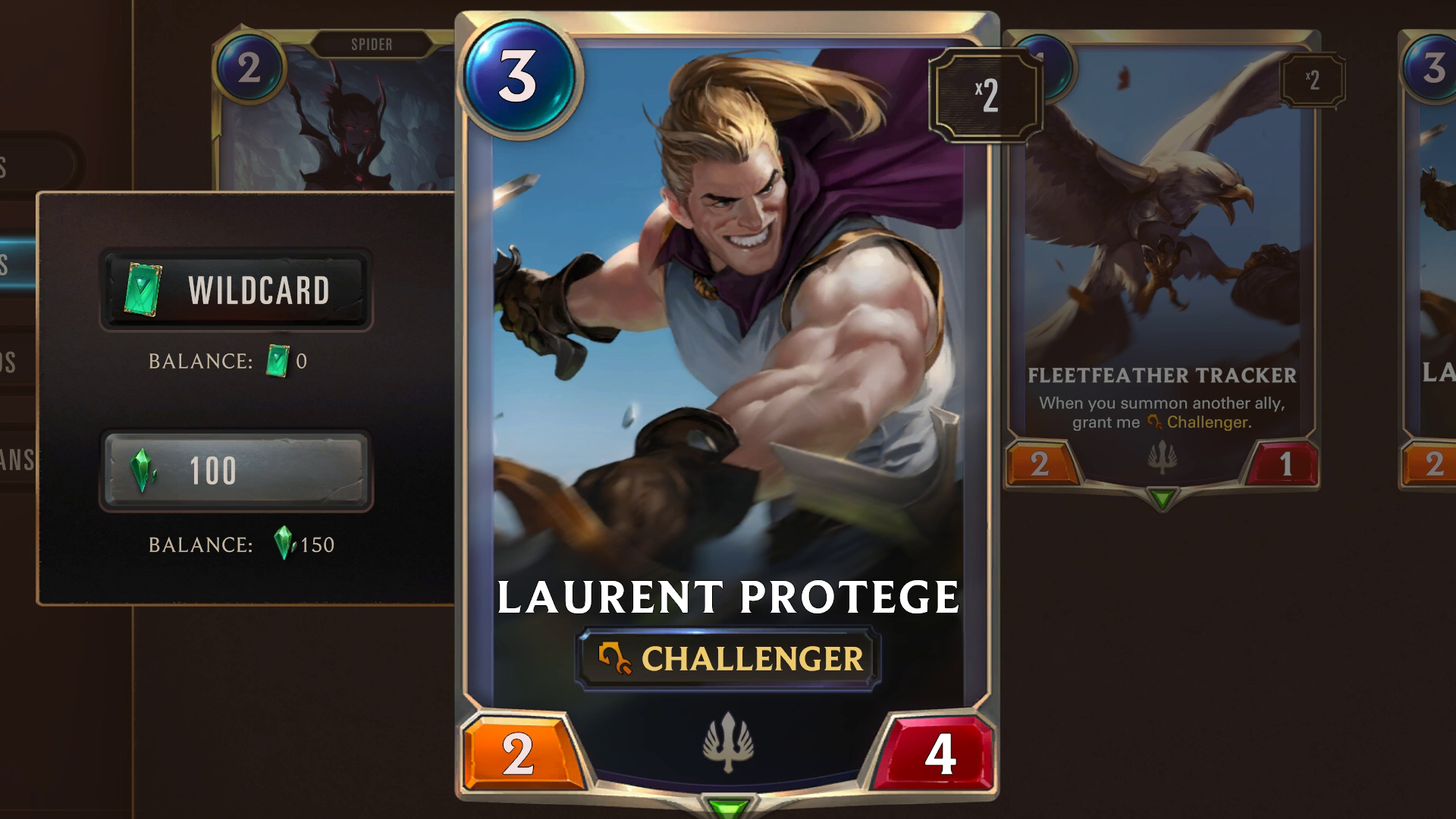
- Cost: The value in the blue circle. Outlines how many mana gems you have to spend to play the card.
- Power: The value in the orange shape. Outlines how much damage the unit can deal when they attack.
- Health: The value in the red shape. Outlines how much damage the unit can withstand before dying.
Keywords
There are several keywords that appear across the Legends of Runeterra cards descriptions. These cover effects, card behaviour, and basic actions.
- Allegiance: If the next card in your deck is from the same region, gain a buff when you summon this unit.
- Capture: A unit is removed from play until the Captor is removed.
- Discard: The card is removed from your hand and deck.
- Drain: Damage dealt to a target heals your Nexus.
- Draw: Add a card to your hand, from your deck.
- Double Attack: Deal damage twice: firstly with Quick Attack, then once in the normal phase.
- Enlightened: The state where you have 10 mana gems.
- Fleeting: This card will discard itself from your hand at the end of the round.
- Frostbite: Set a unit’s Power to 0 this round.
- Last Breath: An effect that activates when the unit dies.
- Obliterate: Remove from the game entirely. Cannot benefit from death-related effects.
- Play: An effect that occurs when you play a card from your hand.
- Plunder: An effect that activates when the card is played, if you damaged the enemy Nexus this round.
- Rally: Player gains an attack token (if they don't have one) to attack this round.
- Recall: Return a unit to the player’s hand. Remove all effects.
- Revive: Resurrect a unit on the board.
- See/Seen: A unit observes an action on the board.
- Silence: All abilities, effects and keywords on a card are removed.
- Skill: A spell-like effect cast by a unit. Allows enemy reactions.
- Strike: When a unit deals damage.
- Strongest: The unit with the highest Power. If the Power is the same as other units, highest Health, then highest Cost.
- Stun: Unit cannot attack or block for the rest of the round.
- Summon: Place a unit on the board.
- Support: Gives an effect to the attacking unit to the right of it.
- Toss: Completely remove a specific number of non-Champion cards from the bottom of your deck.
- Vulnerable: These units can be forced by enemies to block incoming attacks, even if these units cannot usually block.
- Weakest: The unit with the lowest Power. If the Power is the same as other units, lowest Health, then lowest Cost.
Unit abilities
A card’s abilities are highlighted in a small badge, underneath the name of the card. These keywords relate to units, who can have more than one ability.
The biggest gaming news, reviews and hardware deals
Keep up to date with the most important stories and the best deals, as picked by the PC Gamer team.
- Attune: When this unit is summoned, refill one mana.
- Barrier: Negates the next amount of damage the unit will take. Lasts one round.
- Can’t Block: Cannot block enemy attacks.
- Challenger: Chooses which enemy unit will block its attack.
- Deep: This unit has +3/+3 if your deck contains 15 or fewer cards.
- Elusive: Can only be blocked by another Elusive unit.
- Ephemeral: Unit dies when it attacks or when the round ends.
- Fearsome: Can only be blocked by enemies with 3 or more power.
- Lifesteal: Damage dealt will heal your Nexus for the same amount.
- Nexus Strike: An effect activates when a unit attacks the enemy Nexus.
- Overwhelm: Excess damage is dealt to the enemy Nexus.
- Quick Attack: Attack before other units.
- Regeneration: Fully heals at the start of the round.
- Scout: The first time only Scout units attack each round, ready your attack.
- Tough: Take 1 less damage.
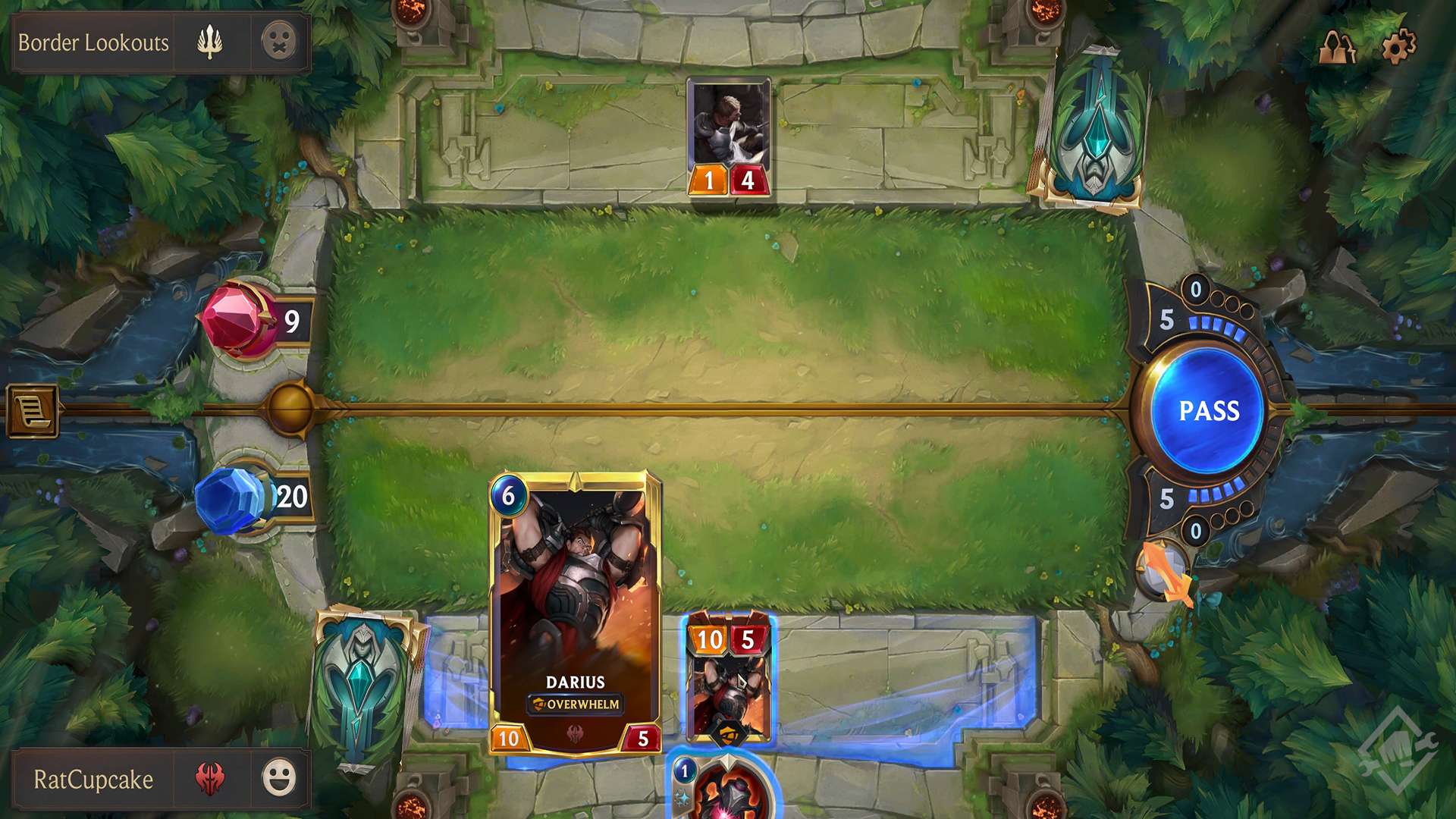
Spells
Spells have three different cast times and may not always allow the enemy to respond. Check the keyword carefully to understand when the spell will cast during the match. If your opponent can respond, you will enter a back-and-forth sequence of spell casting with them.
- Burst: Casts instantly. Your opponent cannot attack before it finishes.
- Fast: Can be played whenever. Your opponent can respond.
- Slow: Can be cast outside combat (before or after). Your opponent can respond.
Some spells have abilities that are classified similarly to the unit abilities mentioned above. So far, only one exists:
- Trap: Attaches to a card, when the card is drawn the effect activates.
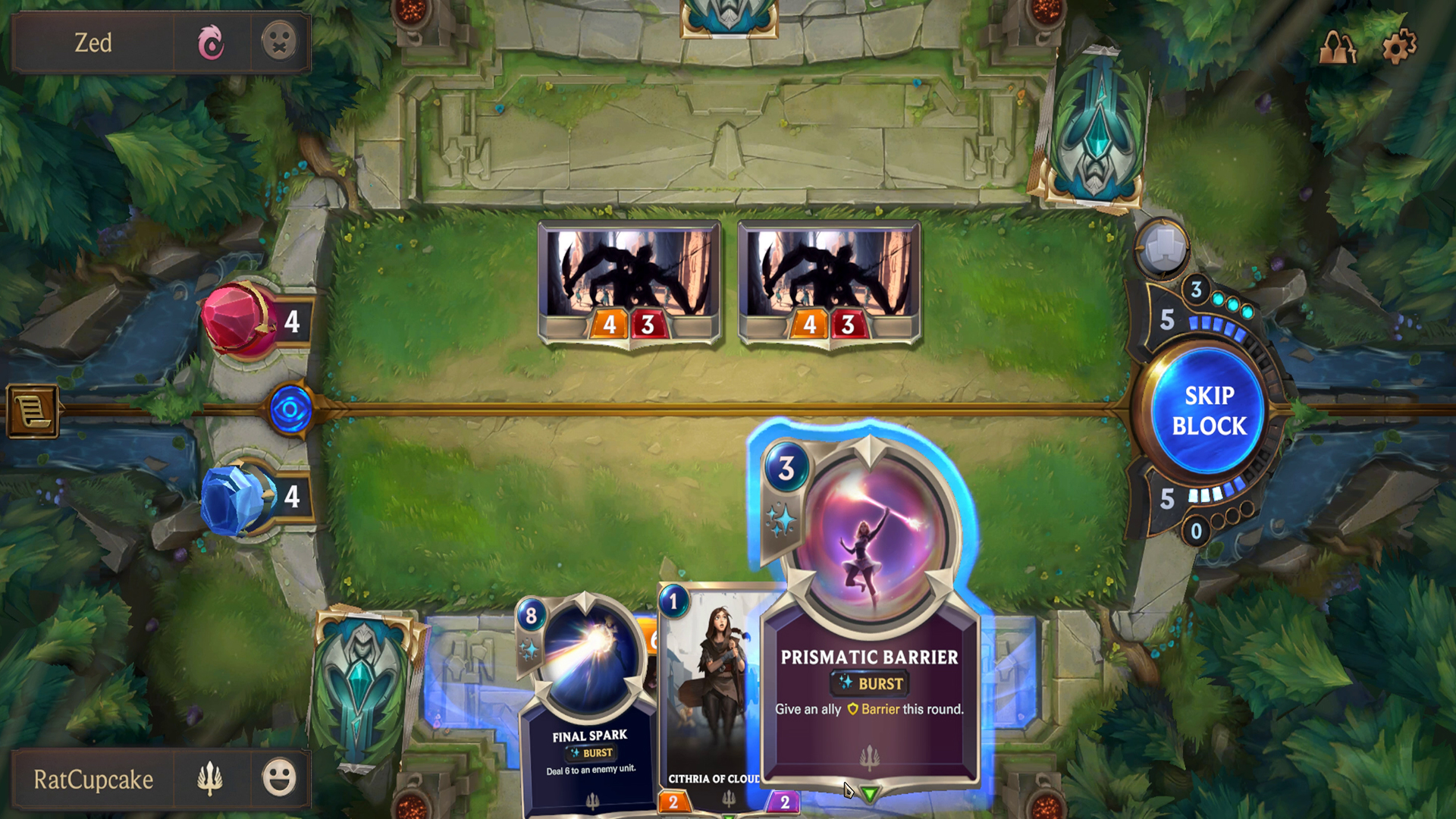
Level Up
Champions are the only cards that can Level Up and require the player to meet specific conditions to do so. Having an empty hand, for example. Levelling a champion unlocks special abilities and increases their Power and Health stats, which upgrades all duplicates of their card, too.
As PC Gamer's guides writer, Emma is usually juggling several games at once. She loves competitive first-person shooters like CS:GO and Call of Duty, but she always has time for a few rounds of Hearthstone. She's happiest when she's rescuing pugs in Spelunky 2.


